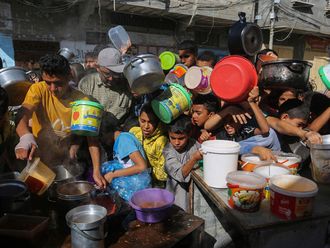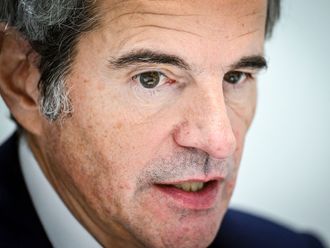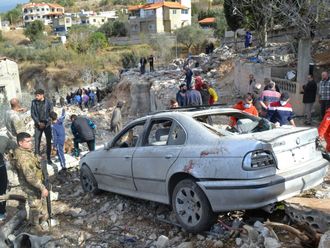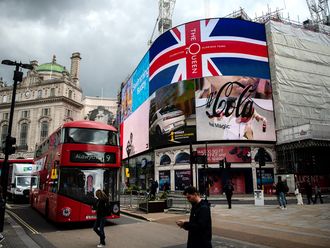Occupied Jerusalem: Israel cannot defeat Hezbollah in a direct engagement and the Lebanese group would inflict heavy damage on the Israeli home front if war broke out, a former Israeli national security adviser said on Thursday.
Though outnumbered and outgunned, Hezbollah held off Israel's advanced armed forces in a 2006 war and fired more than 4,000 rockets into Israeli territory. The group has a domestic political base and has since bolstered an arsenal that Israel describes as a strategic threat.
Tensions between Israel and Hezbollah's Iranian and Syrian backers have stoked expectations of renewed violence in Lebanon.
"Israel does not know how to beat Hezbollah," said Giora Eiland, an army ex-general who served as national security adviser to former prime ministers Ariel Sharon and Ehud Olmert.
"Therefore a war waged only as Israel-versus-Hezbollah might yield better damage on Hezbollah, but Hezbollah would inflict far worse damage on the Israeli homefront than it did 4-1/2 years ago," he told Israel Radio.
Echoing serving Israeli officials, Eiland said:
"Our only way of preventing the next war, and of winning if it happens anyway, is for it to be clear to everyone ... that another war between us and Hezbollah will be a war between Israel and the state of Lebanon and will wreak destruction on the state of Lebanon.
"And as no one -- including Hezbollah, the Syrians or the Iranians -- is interested in this, this is the best way of creating effective deterrence."
Except for a deadly August skirmish between Israeli forces and the regular Lebanese army, the border has been mostly quiet.
But Israelis have been watching for signs that Hezbollah, should it be named in an impending UN indictment over the 2005 assassination of former Lebanese Prime Minister Rafiq Hariri, will push back by consolidating power in Beirut.
Israeli Defence Minister Ehud Barak has argued that Hezbollah's role in governing Lebanon would make the country fair game in any future war involving the Shiite militia.
Eiland said such a scenario would have "the entire world crying out for a ceasefire within two days", which would be more in the Israeli interest "than having to deal directly with every one of (Hezbollah's estimated) 40,000 rockets".












